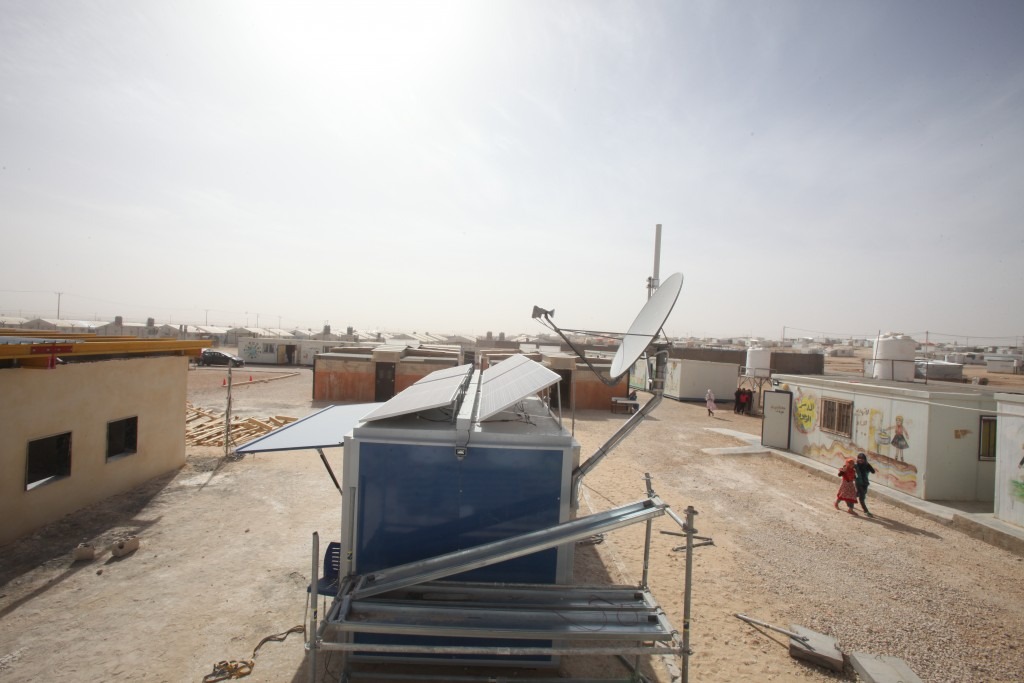
LUXEMBOURG/BERLIN, 19 May 2016 ‚Äì SOLARKIOSK AG, the energy and business gateway to Base-of-the-Pyramid (BoP) communities worldwide, and SES S.A. (NYSE Euronext Paris and Luxembourg Stock Exchange: SESG), announced today that they are pioneering the first-of-its-kind “Connected Solar School” to deliver electricity, educational tools, and broadband internet connectivity to education centres run by UNICEF and Relief International within the Zaatari refugee camp in Jordan. The “Connected Solar School” will utilise solar energy provided by SOLARKIOSK’s E-HUBB technology to deliver broadband connectivity enabled by SES’s Astra Connect broadband platform, which in turn enables teachers to use quality e-learning materials sponsored by UNICEF. SOLARKIOSK’s E-HUBB, designed by the Berlin-based architecture firm GRAFT to provide reliable energy in off-grid areas worldwide, uses solar energy to power connectivity, lights, and computers within the schools. The E-HUBB interior will become the administrative centre for teachers and will have a power node to charge solar lamps, laptops, printers, mobile phones and tablets. The Zaatari refugee camp is currently hosting more than 80,000 refugees, with about 25,000 children of school-going age. In addition to the nine formal school complexes in the camp, UNICEF supports Relief International in running three remedial education centres for children who need extra coaching. A fourth remedial education centre is under development. Currently more than 300 students are attending these remedial education centres.
Andreas Spiess, CEO of SOLARKIOSK, said, Our partnership with SES in supporting UNICEF to utilise the SOLARKIOSK E-HUBB technology will make a significant difference to the quality of life for those who currently reside in the Zaatari camp. Education, connectivity and access to energy are basic rights and we are proud to help facilitate that in challenging environments. The aim of the ‚ÄòConnected Solar School’ project is to devise a successful model that can be further implemented to provide solar-powered public facilities and reliable broadband connectivity within underserved communities.
Millions of Syrian children have endured violence, cruelty and displacement. Schools provide children a sense of routine and normalcy in their lives, and help them continue their education. Only through learning can children reach their full potential and play a positive and active role in rebuilding their lives and country, said the UNICEF Jordan Representative, Robert Jenkins. The ‚ÄòConnected Solar School’ in Zaatari camp is an important case study for UNICEF to explore the viability of such solutions, for possible replication and expansion to other schools and learning centres for children. Gerhard Bethscheider, Managing Director of SES Techcom Services, said, Being able to access online teaching material is a vital part of modern education for both teachers and pupils alike. Entering into a strategic partnership with SOLARKIOSK is a natural fit for our business. Not only do our satellites rely on solar energy to fly in space, they rely on solar energy on earth to deliver connectivity. Together we aim to improve the lives of the refugees in the Zaatari refugee camp.

